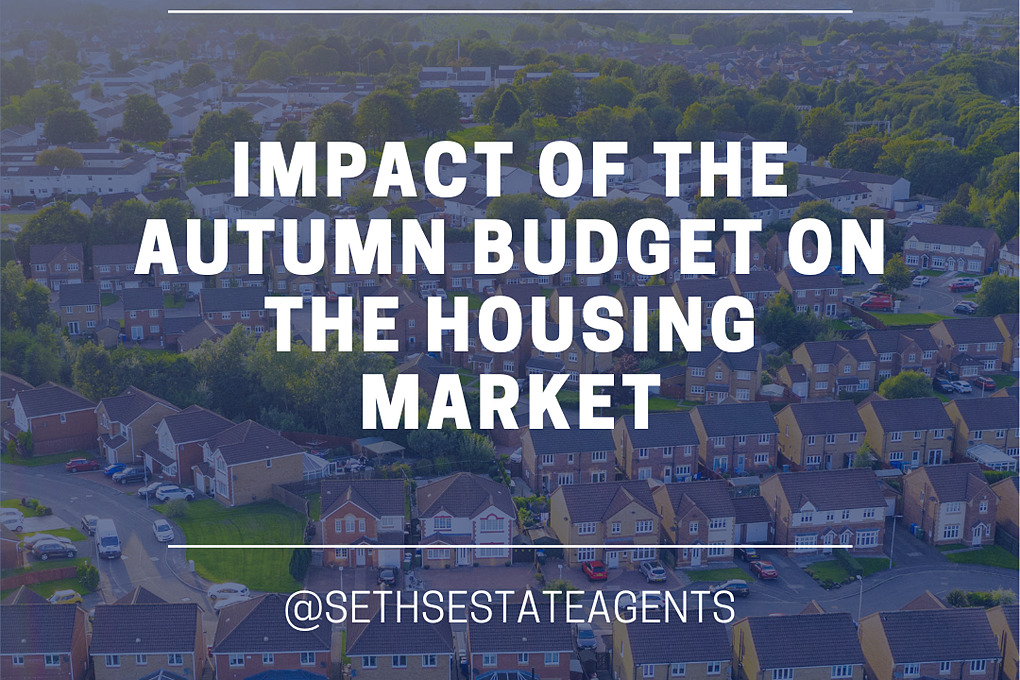Impact of the Autumn Budget on the Housing Market

- Nov 4th 2024
Overview: The Autumn Budget introduces significant changes for property buyers, investors, and the affordable housing sector. Stamp duty on second homes has increased, while relief remains in place for first-time buyers and home movers until April 2025. Capital Gains Tax is set to rise, and there is substantial investment in affordable housing. Here’s a breakdown of the main points.
Key Highlights:
- Stamp Duty Increase: Stamp duty on additional homes has risen to 5%, up from 3%.
- First-Time Buyer and Home Mover Relief: Current stamp duty relief for first-time buyers and home movers will continue until April 2025, after which thresholds will be lowered.
- Capital Gains Tax: Increased for general assets but unchanged at 18% and 24% on residential property sales.
- Affordable Housing Investment: £500 million pledged to increase affordable housing, with plans for 33,000 new homes.
Labour’s First Budget in 14 Years Chancellor Rachel Reeves, the UK’s first female Chancellor, presented a budget aimed at stabilising an inherited economic situation, with tax increases totalling £40 billion. National Insurance contributions from employers will raise the majority of this amount, supplemented by changes in Capital Gains Tax, closing inheritance tax loopholes, and stamp duty on second homes, which is expected to bring in an additional £9 billion.
Breakdown of Key Measures:
1. Stamp Duty on Second Homes: Starting straight away, buyers of additional properties will pay an extra 2% in stamp duty. The new rates are:
- £0 - £250,000: 5%
- £250,001 - £925,000: 10%
- £925,001 - £1.5 million: 15%
- Above £1.5 million: 17%
These changes are expected to impact property investors, leading to a decrease in rental property supply and potentially higher rents for tenants.
2. Relief for First-Time Buyers and Home Movers (Until April 2025):
First-Time Buyers: Exempt from stamp duty on properties up to £425,000. For properties costing £425,000 to £625,000, a 5% tax applies on that portion.
Home Movers: For properties up to £250,000, stamp duty is 5% on the next portion up to £925,000. For homes over £925,000, the rate increases to 10%, and 12% for properties over £1.5 million.
Changes Post-2025: In April 2025, thresholds will lower, affecting both first-time buyers and home movers.
3. Capital Gains Tax (CGT): The rate for basic-rate taxpayers is increased to 18%, and for higher-rate taxpayers to 24%. However, residential property sales will maintain CGT rates of 18% and 24%, keeping the UK’s CGT rates among the lowest in Europe.
4. Inheritance Tax Unchanged Until 2030: Current rules allow £325,000 of a property’s value to be inherited tax-free, with higher allowances if passed to children or a spouse. However, from April 2027, inherited pension funds will be included in inheritance tax assessments.
5. Investment in Affordable Housing: £500 million is allocated to affordable housing development, part of a larger £5 billion package for 33,000 new homes. Major sites include Liverpool Docks and Cambridge. The government will also limit Right to Buy discounts, allowing councils to reinvest proceeds into social housing.
6. Dangerous Cladding: Following the Grenfell Tower fire, £1 billion will be invested next year to remove dangerous cladding from high-rise buildings, addressing critical safety concerns.
Expert Insight: Richard Donnell, Executive Director of Research at Zoopla, highlights the ongoing reduction in rental property supply, emphasising the need for policies that retain landlords in the market. He also stresses that growing the housing supply requires long-term solutions to improve availability and affordability for all income levels over the next two decades.
In summary, the Autumn Budget focusses on long-term growth in the housing sector while addressing immediate concerns through targeted tax adjustments and investment in affordable housing.








